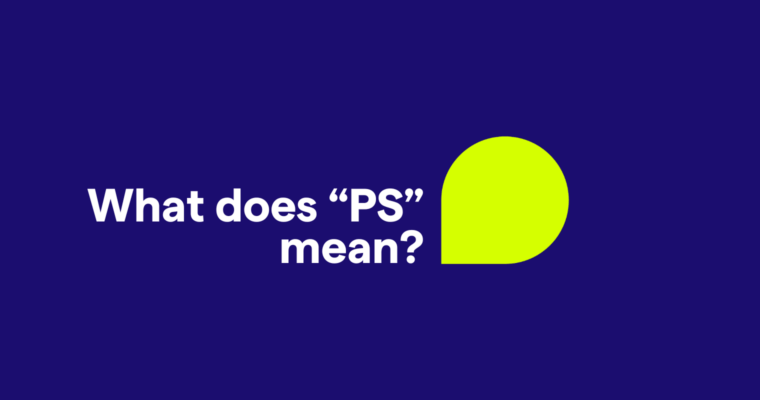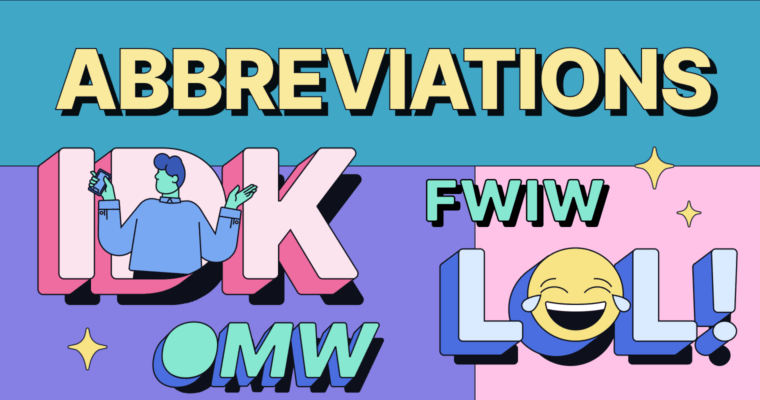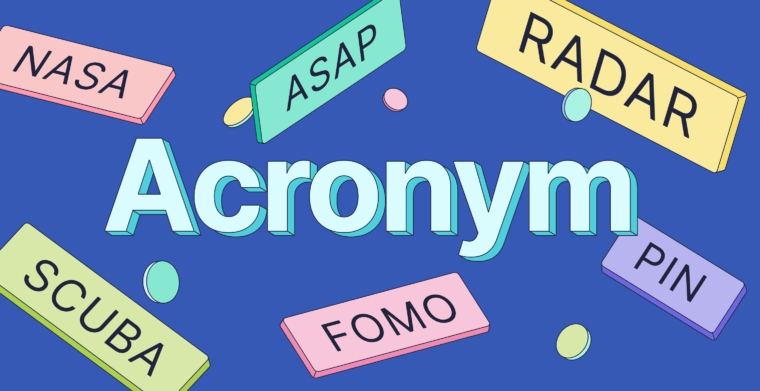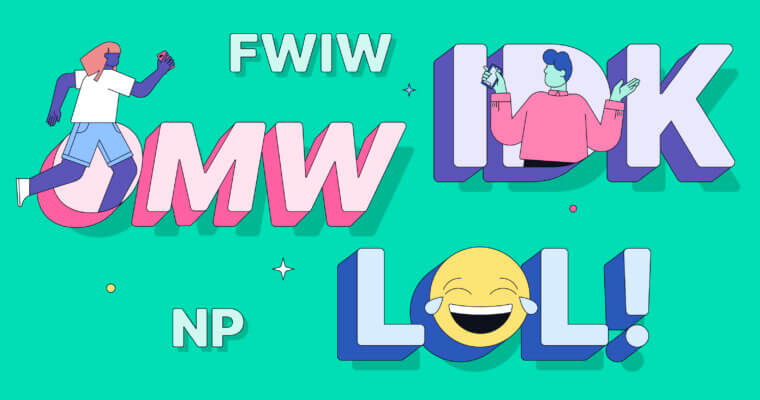
- PS is the abbreviation of “postscript” and comes from the Latin phrase post scriptum, meaning “written after.”
- A PS is an additional thought, comment, or piece of information at the end of a message after your signature.
- Use a PS to include further details, capture an afterthought, add a personal note, emphasize a point, give a reminder, or provide a call to action (CTA).
- PS is widely used in letters and electronic communication like emails, text messages, instant messages, and social media.
- Although the punctuation of PS varies, it should always be capitalized. Make sure to punctuate it consistently in all your correspondence.
PS is a common way to add personality, extra thoughts, or gentle reminders after the main body of your message. Using a postscript can help the recipient engage more effectively with the contents of your letter or email in both personal and professional communication.
Here, we’ll explore the meaning of PS and what it’s used for before discussing the many benefits it can provide. We’ll also include examples to help demonstrate how to use and format PS correctly in everyday correspondence.
Table of contents
What’s the meaning of PS in letters?
PS in emails and other digital communications
What are the benefits of using PS?
What’s the meaning of PS in letters?
PS is the common abbreviation of postscript, which is an additional thought, comment, or piece of information added at the end of a letter after the main message. The abbreviation comes from the Latin phrase post scriptum, meaning “written after.”
Back when a letter was primarily written by hand or on a typewriter, the writer would often remember something they forgot to include or want to add an afterthought once the main message was already written.
That’s where PS came in handy—adding a postscript allowed the writer to convey that information without rewriting the entire letter. As it became the social norm in letter writing, it was often expected that letters would include a PS as a familiar way to conclude correspondence.
Since then, the postscript has evolved from a practical addition to handwritten or typewritten letters to a commonly used element in modern communication.
PS in emails and other digital communications
In today’s digital era, a PS is a common way to effectively convey additional information across various forms of electronic communication like emails, text messages, instant messages, and social media via direct messages, replies, or posts.
Email and direct mail marketing strategies often use PS to highlight promotional content such as deals, offers, bonuses, or testimonials. They also use PS to personalize marketing messages and provide customer calls to action.
PS can be an effective way to get a specific point noticed in emails and other digital communications. That’s because many recipients often skim messages rather than read them word-for-word and tend only to notice what’s at the beginning and at the end.
How to use PS
Use a PS to convey any extra information to your recipient. There are no strict rules regarding what to include in a PS—use it for anything you want to call attention to.
Adding a PS can be effective in both formal and informal communications, but it’s important to consider the context and audience to ensure it fits the tone of your message.
Here are some ways that PS is commonly used in letters, emails, and other messages.
1 Add information
A PS allows you to add information that isn’t included in the main body of the message. This is especially useful if the PS pertains to a topic not previously addressed.
2 Capture an afterthought
Use a PS to share something that comes to mind after you have written your main message or that you should have included but initially overlooked.
3 Emphasize a point
If you want to emphasize a key point or draw attention to important information, use a PS to help your recipient notice it.
4 Clarify something from the main message
If your goal is to ensure your recipient understands something in your message or has the correct details after reading the main content, use PS to provide further clarification.
5 Give a reminder
A PS can be helpful for quickly reminding recipients about an upcoming date, deadline, meeting, or previously agreed-upon item, especially if you’re worried that these details may be overlooked.
6 Provide a final talking point
Providing a final talking point in your PS can be an effective way to leave the recipient with a memorable takeaway or summary about an essential subject in your main message.
7 Add a personal note or congratulations
Use a PS to provide a personalized note, express thanks or appreciation, or acknowledge achievements without distracting from the main content of your message.
8 Add something humorous or clever
A PS can add a touch of humor or a clever observation that catches the reader’s attention, especially if it’s somewhat unexpected after you’ve concluded the main message. However, it’s important to determine whether this approach is appropriate for your audience, especially in professional settings.
9 Include a call to action (CTA)
As the last thing your recipients read, including a CTA in your PS can help prompt an immediate response or active engagement. This approach is commonly used as a strategic marketing tool that transforms passive onlookers into active participants.
10 Highlight promotional content
Using a PS to highlight special offers, deals, or discounts can be an effective marketing strategy that encourages the recipient to take advantage of a promotion or limited-time opportunity without overwhelming the main message.
What are the benefits of using PS?
Using a PS in letters and emails can positively enhance your message’s impact on the recipient. Here are a few of the benefits of using a PS.
PS creates a more relaxed or personable tone
The presence of a PS in a letter or email can establish a more relaxed and personable tone by adding a casual addendum that feels less formal than the main content. It allows you to highlight a friendly reminder or humorous thought without disrupting the flow of the primary message. This informal touch can make the overall message more engaging for the recipient.
PS creates space for an unrelated comment
Including a PS creates a separate space for information, updates, or side notes unrelated to the main message. Using this space for independent thoughts enables you to keep the original message intact and saves you from having to compose and send a separate message.
PS provides flexibility in your thought process
In the flow of writing, new ideas or observations often emerge after the main message is completed. A PS provides an opportunity to spontaneously express a thought without having to rewrite your message or find an appropriate space for it.
PS helps promote engagement
Using a PS can promote engagement by inviting the recipient to consider additional action items that may not fit into the main body of the message. This tactic is beneficial as a marketing tool because it grabs the recipient’s attention by breaking the usual flow of communication. It can encourage the recipient to respond or take further interest in what’s being presented.
PS gets your point across quickly
A PS can help you convey a critical message quickly and effectively. Because it stands out visually, a PS makes it easy for your recipient to spot essential information at a glance. If you summarize, reiterate, or clarify your main point in your PS, recipients are more likely to remember it.
How to write PS correctly
Although the rules for using PS vary and aren’t always accounted for in style guides, PS should always be capitalized and include a space between the S and the contents of your postscript. Here are some other guidelines for writing it correctly.
Punctuation of PS
Periods in PS: Postscripts are commonly abbreviated with (P.S.) or without (PS) periods. Neither is necessarily better than the other. P.S. is common in British English versus PS in American English. The Cambridge Dictionary suggests that P.S. is the proper format, whereas The Chicago Manual of Style favors PS without the periods.
As PS and P.S. are often used informally, you don’t need to wrestle with which option to choose unless you use a style guide that explicitly dictates it. However, you should be consistent—don’t change your punctuation from one message to another. Avoid mixing punctuation and either include two periods or none at all.
Although punctuation after PS is optional, here are some guidelines to follow.
Colon after PS: PS is commonly followed by a colon (PS:), but if you use periods in P.S., you can omit the colon.
Semicolon after PS: Don’t use a semicolon after PS, as semicolons are used to connect two related independent clauses in a single sentence.
Comma after PS: Adding a comma after PS is considered grammatically incorrect.
Dash after PS: An em dash is typically used to set off additional information within a sentence, not to introduce a postscript. However, due to the informal nature of many postscripts, you will commonly see an em dash used after it (PS—).
Placement of PS
Since a postscript is an addition to a letter after completion, it should always follow the signature. This helps emphasize it as an afterthought from the main message. Use a line between the postscript and the signature to provide separation.
Sincerely, [Your Name] PS Don’t forget I’m on vacation next week, so it may be difficult to reach me.
Including a PS in an email works a bit differently. Emails often include an email signature or a personalized block of content that automatically includes your name, job title, company, phone number, and other information.
Placing the PS above your email signature can keep it prominent and easily noticed. Alternatively, it’s common to sign off an email with just your first name followed by a PS, with your email signature at the very end of the email.
Best, [Your First Name] PS I’ll be out of the office next week, but I’m available for a call this Friday if you’d like to discuss further! [Your Automatic Email Signature]
If you want your email signature to remain separate from any additional notes, you can place the PS below it.
Regards, [Your Automatic Email Signature] PS Don’t forget about the team lunch next Wednesday—hope to see you there!
Length of PS
It’s best to keep your PS brief and to the point. The goal is to add information or a final thought without overwhelming the main message, so a lengthy PS is unnecessary.
Ideally, you should limit your PS to one or two sentences and two to three lines. This makes it easier for the recipient to retain the supplemental information you’ve provided.
Adding more than one PS
Adding another message after the initial PS is called a PPS (or “post-postscript”), which you can also format as P.P.S. Including more than one postscript can be practical in certain contexts. However, it’s important to use this approach only when it provides value to your message.
If you have multiple thoughts to add, using a PS and a PPS can help organize them clearly. Use the first PS for the most information, then follow up with a PPS for additional but still relevant details. Keep each postscript brief and limited to a single thought or idea, and separate them with a line to break up the content.
Best regards, [Your Name] PS Please remember to share any last-minute updates or changes in your sections during our team meeting on Wednesday. This will allow everyone to stay informed. PPS Additionally, I’ve attached a resource document that provides tips for final edits and formatting. It could be helpful as you finalize your work.
Before including a PPS, consider your audience and the formality of the communication. In a casual email to a friend, a PPS can feel more personal and lighthearted. In professional correspondence, it may come across as cluttered and detract from your PS unless handled appropriately.
Examples of PS
Here’s an example of a personal letter that uses a PS.
Dear Sarah, I had such a great time catching up with you last weekend! It was so nice to reminisce about our college days and hear all about your new adventures. Let’s not wait too long to do it again—how about planning a weekend trip soon? Take care in the meantime! Best, Jessica PS Don’t forget to send me the recipe for that delicious cake you made. I can’t stop thinking about it!
Here’s an example of a professional email that uses a PS.
Subject: Quarterly Sales Report Dear Team, I hope everyone’s week is off to a great start. Attached, you will find the quarterly sales report for your review. Please take some time to review it before our meeting next week, as we will be discussing our performance and strategies moving forward. Let me know if you have any questions or need further clarification. Best regards, Carlos PS Please come prepared with your insights and any suggestions for improving our sales strategies. Your input will be invaluable during the discussion! Carlos Rivera Sales Manager AcmeCo Phone: 555-312-8920 (ext. 415)
PS FAQs
What does PS mean?
PS is the abbreviation of “postscript,” which refers to an additional thought, comment, or piece of information added at the end of a letter or email after the main message. The abbreviation comes from the Latin phrase post scriptum, meaning “written after.”
What is PS used for?
A PS is used to provide any additional information you want to convey at the end of a message. Use a PS to add a personal note, capture an afterthought, emphasize a point, give a reminder, or provide a call to action (CTA). There are no strict rules regarding what to include in a PS—it can be used for anything you want to call attention to.
How do you punctuate PS?
PS should always be capitalized. Postscripts are commonly abbreviated with (P.S.) or without (PS) periods. Using a colon (PS:) or dash (PS—) after a PS is optional, but following a PS with a comma or semicolon is grammatically incorrect.
Can you use more than PS?
Yes, using more than one PS in a letter or email can be effective in certain contexts. Adding another message after the initial PS is called a PPS (or “post-postscript”), which you can also format as P.P.S. Use a PPS only when it provides value by adding additional relevant information to your message.






